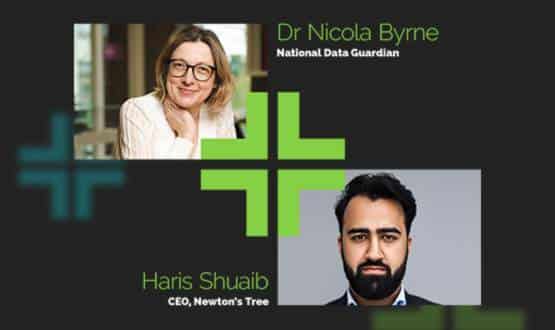Work needed on genomic and genetic data sharing – NDG
- 31 August 2017

Further work is needed to establish how the consent process might appropriately cover data sharing in genetic and genomic medicine, a new paper from the National Data Guardian (NDG) has argued.
Published earlier this month, the policy paper draws on evidence sessions attended by clinical geneticists, genetic counsellors, clinical scientists, legal and health policy experts and government officials.
At the session, representatives of the NDG office and members of the NDG panel – an independent group of experts supporting the National Data Guardian’s work – heard the sharing of data is “necessary and urgent” when interpreting the clinical significance of an individual’s genomic make up.
It was also made clear, however, that there are an array of potential information governance challenges involved.
Interpreting the significance of a genetic variant can require clinicians to access information on other people under the care of other healthcare professionals, sometimes in other health systems in other parts of the world.
There can also be challenges when genetic testing identifies that an individual is at high risk of serious disease, but the individual is estranged from family. Clinicians can be left with an ethical dilemma over whether informing those relatives could constitute a breach of the patient’s confidentiality.
The NDG paper concludes that the 100,000 Genomes project and plans for a reconfiguration of genetic laboratory services could present an opportunity to resolve these issues.
As a result, Digital Health News understands there are no immediate plans to issue formal guidance from the NDG on this area. Instead, the office will focus on collaborating with others already reviewing the area.
The paper does suggest that, as part of the laboratory reconfiguration, privacy impact assessments could be used “to examine suitable arrangements for the sharing of data within the NHS where genomic testing could be used as part of routine clinical care”.
Alison Hall, head of humanities at the PHG Foundation, also told Digital Health News of the need for collaboration between those involved in the field.
“I think it’s really important that all the relevant stakeholders and professional groups and initiatives all try to work together to make sure that there isn’t duplication of effort between the different agencies involved”, said Hall.
The NDG paper and evidence sessions were a response to a workshop held in 2015 between the PHG Foundation – a think tank specialising in biomedical advances – and The Association for Clinical Genetic Science (AGCS).
According to Sobia Raza, head of science at the PHG Foundation, this “highlighted the urgent need for national agreement on this issue including a common understanding of the legitimacy of data sharing”.
Genomics is considered as a hugely promising area for healthcare, with the potential to more accurately diagnose individuals and offer highly tailored care.
To this end, the government launched the 100,000 Genomes Project in late 2012. It involves sequencing the DNA of around 70,000 people to better understand the relationship between genes and disease.
In February, Digital Health News reported on how the falling costs of genetic sequencing and the evolution of artifical intelligence was helping to speedily move precision medicine into the mainstream.





3 Comments
The problem here is under GDPR, you don’t need consent to process under ‘Direct care’. The difficulty is understanding its not GDPR consent that’s the issue here is actually common law duties. GDPR just requires a legal basis to process the data, Health care has its own very special section. However using Genetics for research, now that’s a completely different ballgame.
With genetic data (or results of any test that can infer genetic makeup) being included in GDPR as “personal data” there is significant work that needs to be done around this. Everyone seems to be ignoring this change when discussing this issue, whilst it is hard at the moment, it gets more difficult next year. Consent in the testing process is the easiest way but then systems need to be robust enough to cope with a patient saying “no i dont consent to share information” and not disadvantage them.
As data becomes more personal and sensitive & GDPR comes in to effect, people become more aware and ask questions.
Then you have the problems of TPP and bad actors such as the Royal Free .
People will lose trust in the system and government if they arent given more control of how they share their data. Especially if they cant even see it themselves.
If i cant differentiate between good and evil corporations and who i do and dont trust i will just opt out.
Comments are closed.